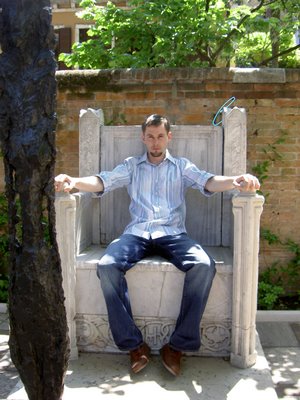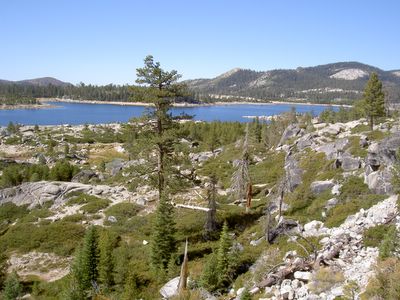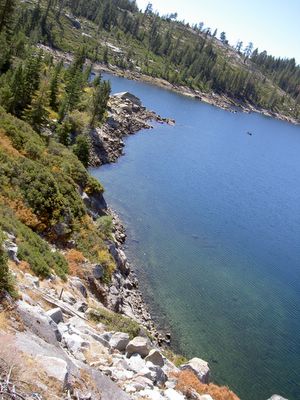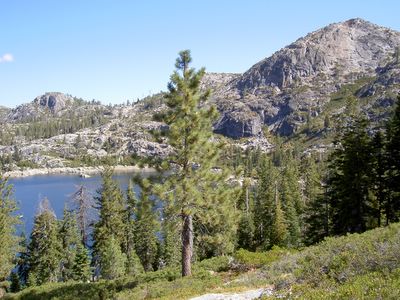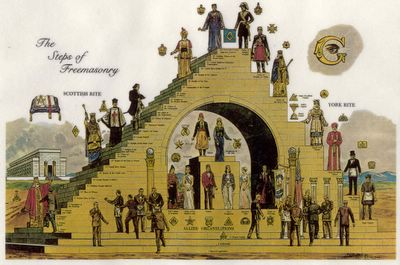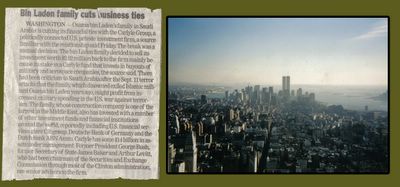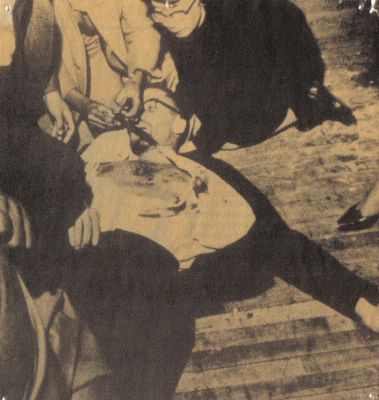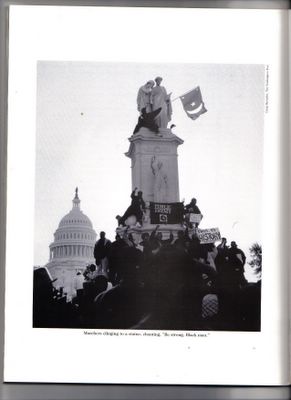- THESE are the times that try men's souls. The summer soldier and the sunshine patriot will, in this crisis, shrink from the service of their country; but he that stands it now, deserves the love and thanks of man and woman. Tyranny, like hell, is not easily conquered; yet we have this consolation with us, that the harder the conflict, the more glorious the triumph. What we obtain too cheap, we esteem too lightly: it is dearness only that gives every thing its value. Heaven knows how to put a proper price upon its goods; and it would be strange indeed if so celestial an article as FREEDOM should not be highly rated.
- The American Crisis, December 19, 1776
- A thing moderately good is not so good as it ought to be. Moderation in temper is always a virtue, but moderation in principle is always a vice.
- Independence is my happiness, and I view things as they are, without regard to place or person; my country is the world, and my religion is to do good.
- The Rights of Man, 1792
- 'Tis surprising to see how rapidly a panic will sometimes run through a country. All nations and ages have been subject to them. Britain has trembled like an ague at the report of a French fleet of flat-bottomed boats; and in the fourteenth [fifteenth] century the whole English army, after ravaging the kingdom of France, was driven back like men petrified with fear; and this brave exploit was performed by a few broken forces collected and headed by a woman, Joan of Arc. Would that heaven might inspire some Jersey maid to spirit up her countrymen, and save her fair fellow sufferers from ravage and ravishment! Yet panics, in some cases, have their uses; they produce as much good as hurt. Their duration is always short; the mind soon grows through them, and acquires a firmer habit than before. But their peculiar advantage is, that they are the touchstones of sincerity and hypocrisy, and bring things and men to light, which might otherwise have lain forever undiscovered. In fact, they have the same effect on secret traitors, which an imaginary apparition would have upon a private murderer. They sift out the hidden thoughts of man, and hold them up in public to the world. Many a disguised Tory has lately shown his head, that shall penitentially solemnize with curses the day on which Howe arrived upon the Delaware.
- The American Crisis, December 19, 1776
[edit]
Common Sense (February 14, 1776)
- When we are planning for posterity, we ought to remember that virtue is not hereditary.
- O! ye that love mankind! Ye that dare oppose not only tyranny but the tyrant, stand forth! Every spot of the Old World is overrun with oppression. Freedom hath been hunted round the globe. Asia and Africa have long expelled her. Europe regards her like a stranger and England hath given her warning to depart. O! receive the fugitive and prepare in time an asylum for mankind.
- Perhaps the sentiments contained in the following pages, are not YET sufficiently fashionable to procure them general favour; a long habit of not thinking a thing WRONG, gives it a superficial appearance of being RIGHT, and raises at first a formidable outcry in defense of custom. But the tumult soon subsides. Time makes more converts than reason.
- The cause of America is in a great measure the cause of all mankind. Many circumstances hath, and will arise, which are not local, but universal, and through which the principles of all Lovers of Mankind are affected, and in the Event of which, their Affections are interested. The laying a Country desolate with Fire and Sword, declaring War against the natural rights of all Mankind, and extirpating the Defenders thereof from the Face of the Earth, is the Concern of every Man to whom Nature hath given the Power of feeling; of which Class, regardless of Party Censure, is the AUTHOR.
- Who the Author of this Production is, is wholly unnecessary to the Public, as the Object for Attention is the DOCTRINE ITSELF, not the MAN. Yet it may not be unnecessary to say, That he is unconnected with any Party, and under no sort of Influence public or private, but the influence of reason and principle.
- Some writers have so confounded society with government, as to leave little or no distinction between them; whereas they are not only different, but have different origins. Society is produced by our wants, and government by our wickedness; the former promotes our POSITIVELY by uniting our affections, the latter NEGATIVELY by restraining our vices. The one encourages intercourse, the other creates distinctions. The first a patron, the last a punisher.
- Society in every state is a blessing, but government even in its best state is but a necessary evil; in its worst state an intolerable one; for when we suffer, or are exposed to the same miseries BY A GOVERNMENT, which we might expect in a country WITHOUT GOVERNMENT, our calamity is heightened by reflecting that we furnish the means by which we suffer.
- WHEREFORE, security being the true design and end of government, it unanswerably follows, that whatever FORM thereof appears most likely to ensure it to us, with the least expense and greatest benefit, is preferable to all others.
[edit]
Dissertation on First Principles of Government (Paris, July 1795)
- The right of voting for representatives is the primary right by which other rights are protected.
To take away this right is to reduce a man to slavery, for slavery consists in being subject to the will of another, and he that has not a vote in the election of representatives is in this case.
- It is never to be expected in a revolution that every man is to change his opinion at the same moment. There never yet was any truth or any principle so irresistibly obvious that all men believed it at once. Time and reason must cooperate with each other to the final establishment of any principle; and therefore those who may happen to be first convinced have not a right to persecute others, on whom conviction operates more slowly. The moral principle of revolutions is to instruct, not to destroy.
- It is the nature and intention of a constitution to prevent governing by party, by establishing a common principle that shall limit and control the power and impulse of party, and that says to all parties, thus far shalt thou go and no further. But in the absence of a constitution, men look entirely to party; and instead of principle governing party, party governs principle.
- An avidity to punish is always dangerous to liberty. It leads men to stretch, to misinterpret, and to misapply even the best of laws. He that would make his own liberty secure must guard even his enemy from oppression; for if he violates this duty he establishes a precedent that will reach to himself.
[edit]
Letter to the Addressers
- And the final event to himself (Mr. Burke) has been, that, as he rose like a rocket, he fell like the stick.
- Source: Letter to the Addressers
[edit]
The Age of Reason
[edit]
Part First
- All national institutions of churches, whether Jewish, Christian, or Turkish, appear to me no other than human inventions set up to terrify and enslave mankind, and monopolize power and profit.
- It is necessary to the happiness of man, that he be mentally faithful to himself. Infidelity does not consist in believing, or in disbelieving; it consists in professing to believe what he does not believe.
- It is impossible to calculate the moral mischief, if I may so express it, that mental lying has produced in society. When a man has so far corrupted and prostituted the chastity of his mind, as to subscribe his professional belief to things he does not believe, he has prepared himself for the commission of every other crime.
- It is a contradiction in terms and ideas to call anything a revelation that comes to us at second hand, either verbally or in writing. Revelation is necessarily limited to the first communication. After this, it is only an account of something which that person says was a revelation made to him; and though he may find himself obliged to believe it, it cannot be incumbent on me to believe it in the same manner, for it was not a revelation made to me, and I have only his word for it that it was made to him.
- But if objects for gratitude and admiration are our desire, do they not present themselves every hour to our eyes? Do we not see a fair creation prepared to receive us the instant we are born — a world furnished to our hands, that cost us nothing? Is it we that light up the sun, that pour down the rain, and fill the earth with abundance? Whether we sleep or wake, the vast machinery of the universe still goes on. Are these things, and the blessings they indicate in future, nothing to us? Can our gross feelings be excited by no other subjects than tragedy and suicide? Or is the gloomy pride of man become so intolerable, that nothing can flatter it but a sacrifice of the Creator?
- If Jesus Christ was the being which those Mythologists tell us he was, and that he came into this world to suffer, which is a word they sometimes use instead of to die, the only real suffering he could have endured, would have been to live. His existence here was a state of exilement or transportation from Heaven, and the way back to his original country was to die. In fine, everything in this strange system is the reverse of what it pretends to be.
- ...the doctrine of redemption is founded on a mere pecuniary idea corresponding to that of a debt which another person might pay; and as this pecuniary idea corresponds again with the system of second redemption, obtained through the means of money given to the Church for pardons, the probability is that the same persons fabricated both the one and the other of those theories; and that, in truth there is no such thing as redemption — that it is fabulous, and that man stands in the same relative condition with his Maker as he ever did stand since man existed, and that it is his greatest consolation to think so.
- ...for what is the amount of all his prayers but an attempt to make the Almighty change his mind, and act otherwise than he does? It is as if he were to say: Thou knowest not so well as I.
- THE WORD OF GOD IS THE CREATION WE BEHOLD and it is in this word, which no human invention can counterfeit or alter, that God speaketh universally to man.
- It is only by the exercise of reason that man can discover God.
- What more does man want to know than that the hand or power that made these things is divine, is omnipotent? Let him believe this with the force it is impossible to repel, if he permits his reason to act, and his rule of moral life will follow of course.
- As to the Christian system of faith, it appears to me as a species of Atheism — a sort of religious denial of God. It professes to believe in a man rather than in God. It is a compound made up chiefly of Manism with but little Deism, and is as near to Atheism as twilight is to darkness. It introduces between man and his Maker an opaque body, which it calls a Redeemer, as the moon introduces her opaque self between the earth and the sun, and it produces by this means a religious, or an irreligious, eclipse of light. It has put the whole orbit of reason into shade.
- That which is now called natural philosophy, embracing the whole circle of science, of which astronomy occupies the chief place, is the study of the works of God, and of the power and wisdom of God in his works, and is the true theology.
- The Book of Job and the 19th Psalm, which even the Church admits to be more ancient than the chronological order in which they stand in the book called the Bible, are theological orations conformable to the original system of theology. The internal evidence of those orations proves to a demonstration that the study and contemplation of the works of creation, and of the power and wisdom of God, revealed and manifested in those works, made a great part in the religious devotion of the times in which they were written; and it was this devotional study and contemplation that led to the discovery of the principles upon which what are now called sciences are established; and it is to the discovery of these principles that almost all the arts that contribute to the convenience of human life owe their existence. Every principal art has some science for its parent, though the person who mechanically performs the work does not always, and but very seldom, perceive the connection.
- It is a fraud of the Christian system to call the sciences human invention; it is only the application of them that is human. Every science has for its basis a system of principles as fixed and unalterable as those by which the universe is regulated and governed. Man cannot make principles, he can only discover them.
- The Almighty Lecturer, by displaying the principles of science in the structure of the universe, has invited man to study and to imitation. It is as if He had said to the inhabitants of this globe that we call ours, "I have made an earth for man to dwell upon, and I have rendered the starry heavens visible, to teach him science and the arts. He can now provide for his own comfort, and learn from my munificence to all to be kind to each other."
- The age of ignorance commenced with the Christian system.
[edit]
Part Second
- People in general do not know what wickedness there is in this pretended word of God. Brought up in habits of superstition, they take it for granted that the Bible is true, and that it is good; they permit themselves not to doubt of it, and they carry the ideas they form of the benevolence of the Almighty to the book which they have been taught to believe was written by his authority. Good heavens! it is quite another thing; it is a book of lies, wickedness, and blasphemy; for what can be greater blasphemy than to ascribe the wickedness of man to the orders of the Almighty?
- Of all the systems of religion that ever were invented, there is none more derogatory to the Almighty, more unedifying to man, more repugnant to reason, and more contradictory in itself, than this thing called Christianity. Too absurd for belief, too impossible to convince, and too inconsistent for practice, it renders the heart torpid, or produces only atheists and fanatics.
